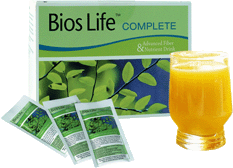Clinical Results of Bios Life on Diabetic Studies
Dr. Peter Verdegem, Unicity Chief Science Officer, and Franchise Owners Dr. Isabel Martinez, MD, and Bobbi Horne, both from Blue Mesa Medical Associates in Katy, TX, presented the results from a clinical study conducted to study the effect of Bios Life on type 2 diabetes.
The study was conducted on 34 patients who were diagnosed with type 2 diabetes and hypercholesterolemia. The study participants took Bios Life twice daily 15 to 20 minutes before meals. The study measured lipid and glucose levels at the start of the study, and then after 4 weeks, and again after 8 weeks.
The study, entitled “Lipid and Glucose Optimization Using Phytonutrient Combination Therapy in Diabetics” was presented at the American Heart Association Arteriosclerosis, Thrombosis, and Vascular Biology Annual Conference held April 19-21, 2007 in Chicago. See below for clinical abstract.
The study concluded that after taking Bios Life for 8 weeks:
Parameter.............All Participants......Participants with dangerous levels.
Total Cholesterol...Decreased 14.2%...Decreased 21.5 %
LDL(bad) ...........Decreased 18.3%...Decreased 28.9%
HDL (good)..........Increased 3.5%....Increased 14.4%
Total Glucose.......Decreased 21.3%...Decreased 32.5%
Glucose.............Decreased 17.3%...Decreased 28.9%
HbA1c...............Decreased 9.4%....Decreased 15.8%
If you are diabetic, in 8 weeks, Bioslife will reduce your diabetic levels and manage your cholesterol to reduce your risk for stroke and heart disease.






